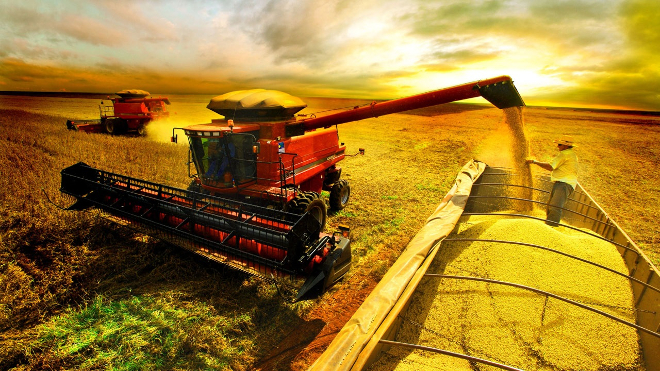The “surprise tax” raises export prices and brings Brazil closer to Argentina
A “surprise” element in the proposed constitutional amendment (PEC) of tax reform, approved by the Chamber and now under analysis by the Senate, brings Brazil closer to a very common practice in Argentina: taxing exports.
Included at the last minute, just before the vote on PEC 45, a device contained in Article 20 of the adhesive amendment allows states to levy a contribution on primary and semi-finished products until 2043. The funds will finance investment in infrastructure to produce flow.
According to the Brazilian Foreign Trade Association (AEB), the burden of the tax could be large, as Brazil is one of the world’s largest producers of primary and semi-processed goods such as soybeans, corn, iron ore and oil. These items represent about 40% of Brazil’s exports.
The entity points out that imposing taxes on these products may create additional costs, harming the competitiveness and sales of these products abroad.
The effects are not limited to exportable species. According to the coordinator of the Center for Fiscal Studies at FGV Direito SP and director of the Center for Fiscal Citizenship, Eurico de Santi, the basic food basket could also be affected by the measure, as it consists of primary and semi-processed products.
The tax reform PEC provides that the national basic food basket, which will be determined through supplementary legislation sent by the government to Congress, will be exempt from taxation by the future double Value Added Tax (VAT). The products that make it up will have a zero rate.
“The measure would harm agribusiness, precisely one of the sectors that participated most actively in the negotiations,” says the coordinator. In addition to not taxing the basic food basket, the sector has also managed to achieve a rate of 60% lower than the normal rate for inputs used in agriculture and animal husbandry.
De Santi believes this “trinket” is unnecessary. The fear of states where agribusiness is strong is that there will be revenue losses with consumption tax reform. One of the commanders of these federal units, Ronaldo Caiado (DEM), from Goias, was against the changes.
The Center for Fiscal Citizenship, from which the basis of the proposal that led to the PEC tax reform arose, excludes that any state will suffer losses by implementing the double VAT, formed by the Goods and Services Tax (IBS) in force. the state ICMS and the municipal ISS; and the Contribution on Goods and Services (CBS), which replaces three federal taxes: PIS, Cofins and IPI.
Expectations are for withdrawal of the device in the Senate
The expectation is that this device will be withdrawn during the debates in the Senate, which begin in August. De Santi sees no room for the initiative to prosper. “The great advantage of the tax reform proposal is that it is neutral – without implying revenue losses for federal entities – simple, transparent and equitable,” says the expert.
AEB executive president José Augusto de Castro points out that the infrastructure contribution goes against the principles of tax reform: “Instead of reducing costs, it will increase them.”
Another problem pointed out by the business leader is that the proposal to create this tax ends up promoting legal uncertainty. “This measure goes against the guidelines set for the reform and may have a negative impact on the economy and business environment,” he says.
Argentina is losing its competitiveness with the export tax
Taxing exports – known as “retenciones” – is a common practice in Argentina. It is one of the main collection tools and ends up making their products less competitive, favoring competitors.
Retenciones are a system of taxes on foreign sales of agricultural products and commodities, such as soybeans and meat. It is a measure by the Argentine government to generate revenue and regulate exports from the country, which has a gap in public accounts. Itau estimates that Argentina’s primary deficit will reach 3% of GDP this year.
The tribute is the subject of controversy in the neighboring country. On the one hand, the government defends that it is important, in addition to revenue, to ensure food security, internal supply and the protection of the local market.
On the other hand, bodies linked to agricultural enterprises point out that the measure affects the competitiveness of Argentine products abroad, harming the country’s economic development.
According to Castro, Argentina is no longer a recognized competent country in the export of goods. Allied with two consecutive harvests affected by climate problems, the country became a buyer of Brazilian soybeans.
Data from the Ministry of Finance’s Foreign Trade Secretariat (Secex) show that in the first half of the year, Brazil’s oilseed exports to Argentina reached 3 million tons, almost 16 times more than the same period in 2022. It was US$1.55 billion. .
The executive points out that the effects of the implementation of the tax on the Argentine economy are evident, which increases the concern of other sectors in the face of this example.
#surprise #tax #raises #export #prices #brings #Brazil #closer #Argentina
